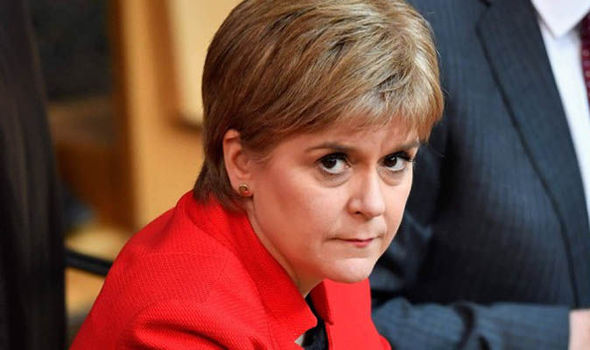“I hear certain sarky remarks about this being “a new definition of having it all”, writes Mary Kenny
There was a young woman of my acquaintance who, a couple of years ago, disappeared from view, and then returned as a male, having had a sex change operation. She was always a boyish kind of girl, academically clever and admirably concerned with refugee causes.
It’s a Christian duty not to judge, and even if older people were bewildered by this choice, I heard no one making critical remarks about the situation, though some fell silent from a certain embarrassment.
This young person, identifying as male, has now announced that he hopes to have a baby. The mechanics have not been explained, since, so far as I know, the woman-to-man gender change does not include the production of sperm. But it seems perhaps that enough of the female biological equipment may remain in place to gestate life.
Again, no one wishes to be unkind, but I hear certain sarky remarks about this being “a new definition of having it all – the penis, and then the womb too”.
Defensive
The transgender lobby is very defensive – and can be aggressive on social media – so most people feel it wise to keep schtum on this subject. Certainly, any critical comments made on social media such as Twitter will be met by a volley of abuse.
But the rise in demands for sex changes can be baffling: British schools are now seeing a considerable increase in pupils saying they are transgender, and counsellors are being hired to facilitate this.
In America, there’s a growing movement to expand all definitions of gender, whereby people are neither masculine nor feminine, gay or straight, but ‘intersex’, ‘gender-fluid’, ‘genderless’, ‘demi-girl’, ‘non-binary’, ‘gender variant’ or ‘pangender’.
Twenty per cent of youngsters born around the millennium now describe their gender as ‘ambiguous’.
There’s also ‘cisgender’ – people who identify with the sexual identity into which they were born – until recently taken as the norm.
Is this movement a sign of something new happening to the human species? Or perhaps the infinite expansion of the concept of ‘choice’? Or just adolescent crazy-mixed-upness carried on into adulthood?
We have to be aware of it, treading that fine line between not judging and common sense.
Ethics of aerial bombardment
There have been some almost unbearable reports from Mosul by that brave and unflinching Irishwoman, Orla Guerin, BBC correspondent. The agonising cries of children badly wounded from aerial bombing were heart-piercing and surely question the ethics of a military strategy of dropping a huge bomb on a city area to target one sniper – as is occurring.
ISIS must be defeated, but there must be better ways of doing this than shattering the lives of so many innocent families. A sniper should be neutralised by a better sniper, not a 500-pound bomb from the air.
The Catholic Church has always questioned the ethics of aerial bombardment, following Acquinas’ guidelines. Surely, as in Mosul, it’s morally wrong.
Scottish independence not in Ireland’s interest
There is said to be widespread sympathy in Ireland for the cause of Scottish independence. Understandable. Yet it’s worth heeding some economists’ views that an independent Scotland would be a rival to Ireland for investment, jobs and trade.
Here’s a nearby Celtic nation which could offer everything that Ireland can offer, plus a stronger tradition of industrial and engineering skills, including oil development experience.
Scottish independence is hardly in Ireland’s interest – north or south.
I admired Nicola Sturgeon until she addressed the Oireachtas last year, when she offered Scotland’s assistance to liberalise Ireland’s abortion law. Some may call that solidarity, but I’d suggest it’s meddling in the jurisdiction of another country where the citizens decide what the law shall be.


 Mary Kenny
Mary Kenny
